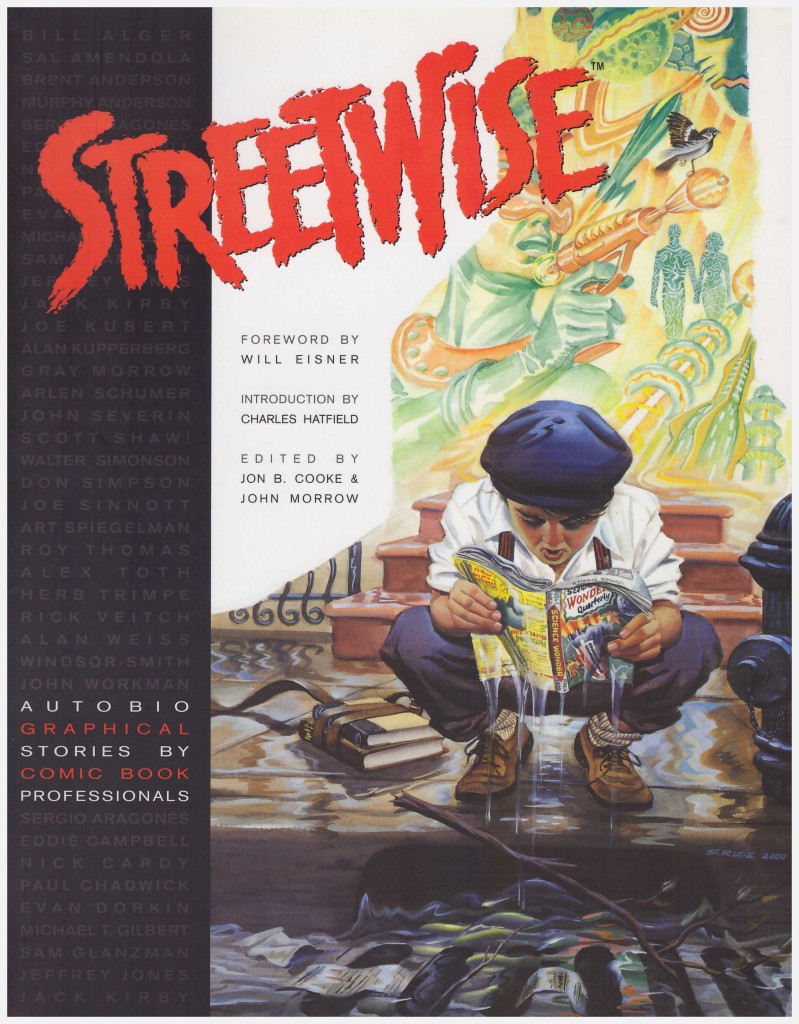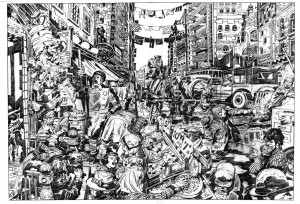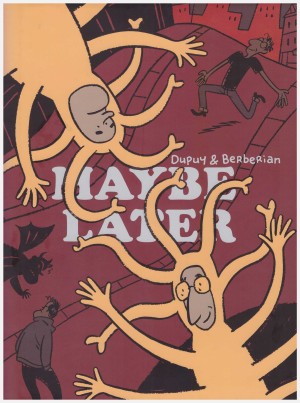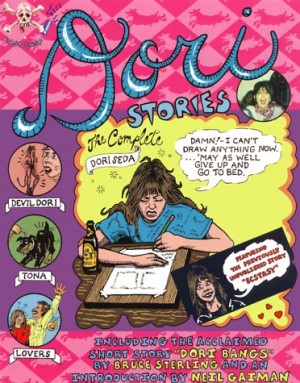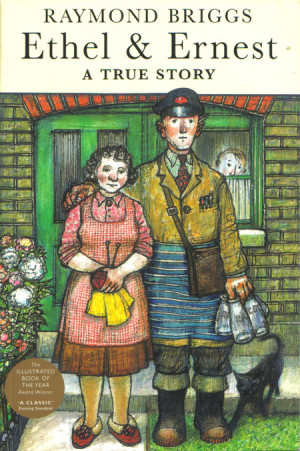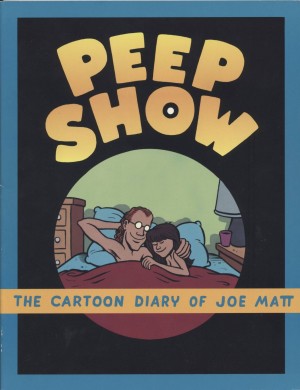Review by Frank Plowright
The majority of creators producing autobiographical graphic novels concentrate on the minutae of their lives. Very few relate anecdotal incidents, and most began their self-examination in their twenties. Streetwise is different. The editorial brief was broad, little beyond the theme of autobiography, and the creators approached were, for the most part, those whose work had largely been for Marvel and DC, so better known for superheroes, war or mystery stories.
The project was inspired by Jack Kirby, who’d drawn a strip reflecting on his childhood for a science fiction magazine, so unseen by many of his fans and reprinted here. Kirby mythologises the turf battles of 1920s New York using the visual shorthand he’d developed for superheroes, including a stunning double page spread of life outside the tenements. Nick Cardy’s reflections on the same era deliver similar deprivation amid more idyllic recollections, and a more comfortable 1930s suburban existence is supplied by Murphy Anderson, Delving deeper in, it’s not always the better known names who deliver the best work. Alex Toth’s contribution is one of his typically dense hand-written letters, originally supplied to Will Eisner, yet Alan Kupperberg, one of the more obscure contributors, supplies a charming eight pages charting his path from a typical comics and television obsessed child to earning a living from the careers he idolised.
Barry Windsor-Smith’s inexplicable experience was life-changing, Brent Anderson’s life saving, Bill Alger’s life-affirming. Sergio Aragonés is a master raconteur (and picked up an Eisner Award for his contribution), Eddie Campbell delivers a great punchline and Joe Kubert’s dream while nodding off in Paris a delight. The theme encompasses a broad spectrum of style, sitting astonishingly well in concert from Evan Dorkin’s frenetic cartooning to John Severin’s tightly controlled illustration, Michael Gilbert’s exaggerated Eisneresque work to Sal Amendola’s lithe graphic realism. There’s an embarrassment of riches here, and if the price is to be paid is the editors having to include a page of faxed-in doodles from Jeff Jones, then the price is cheap. This is not only good autobiographical comics, it ranks among the best anthologies. In the manner of all zealots, comic fans are perennially searching for the graphic novel that could convert non-enthusiasts. Here it is.
